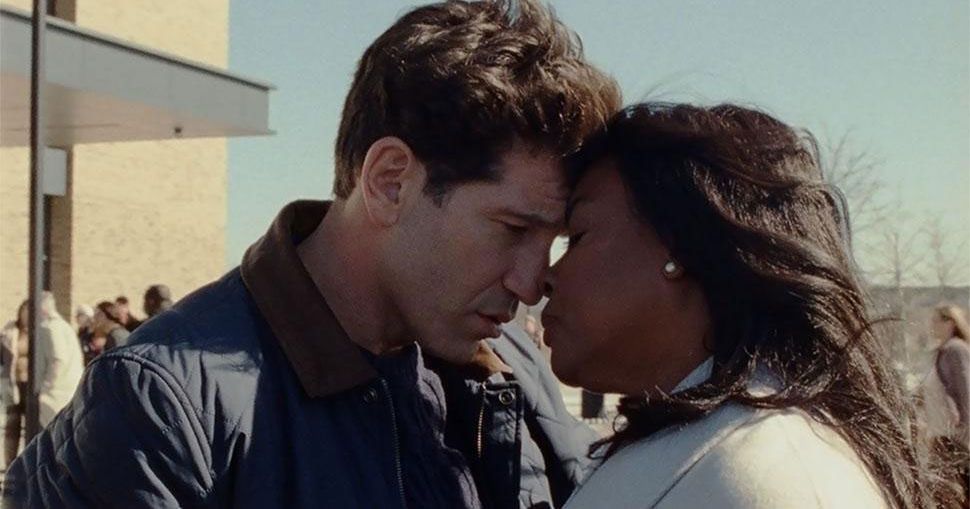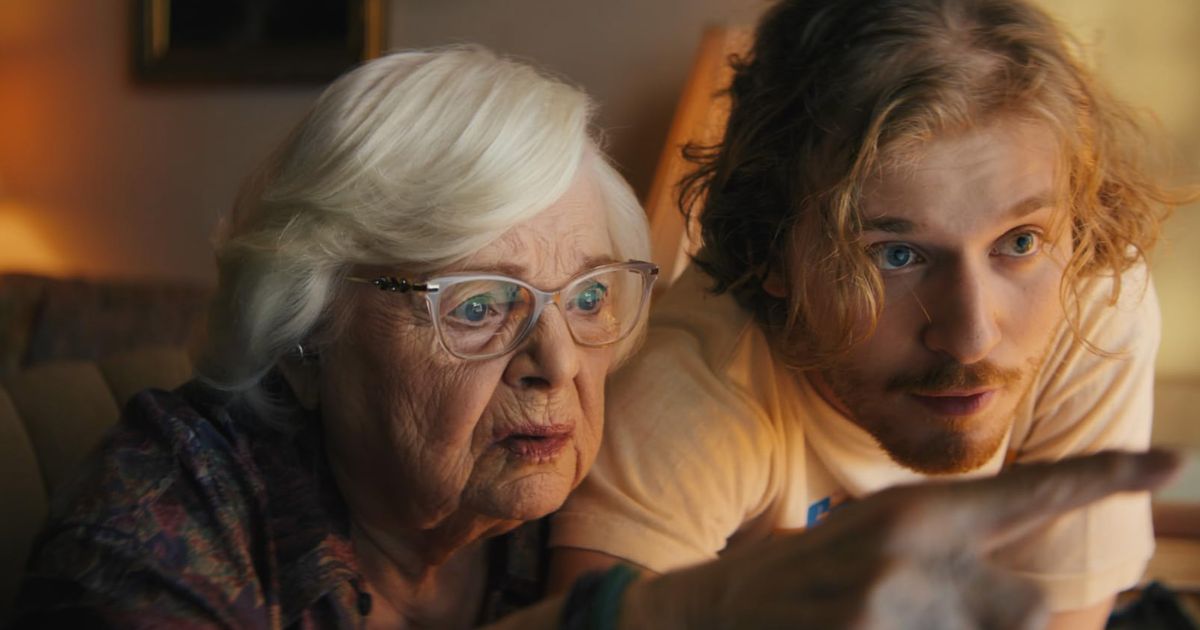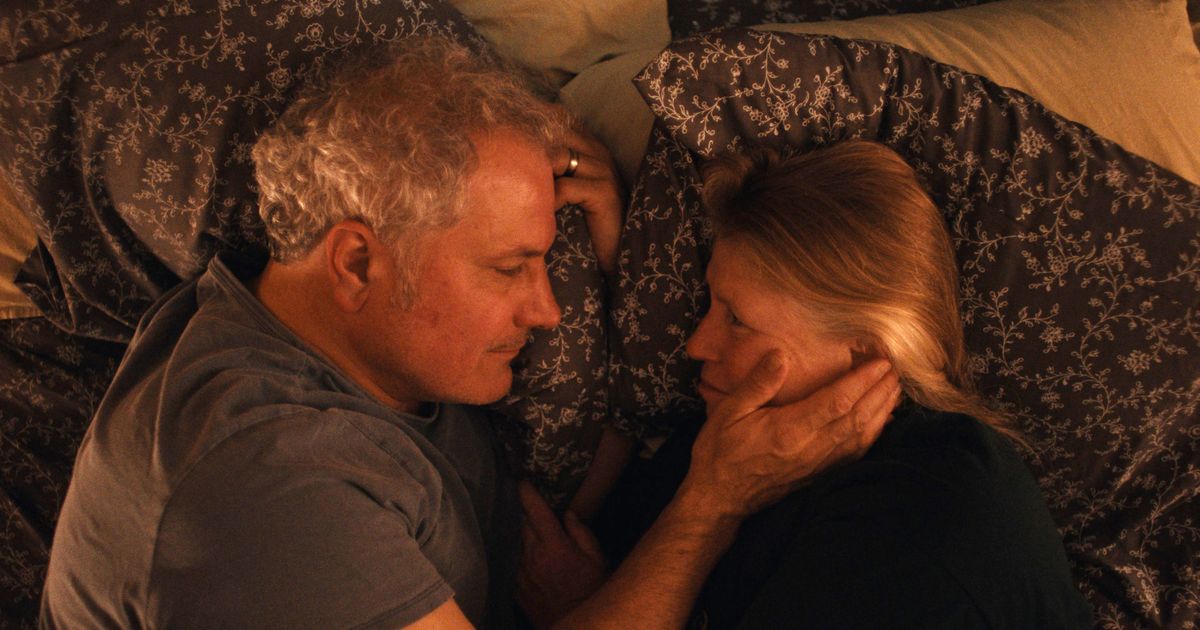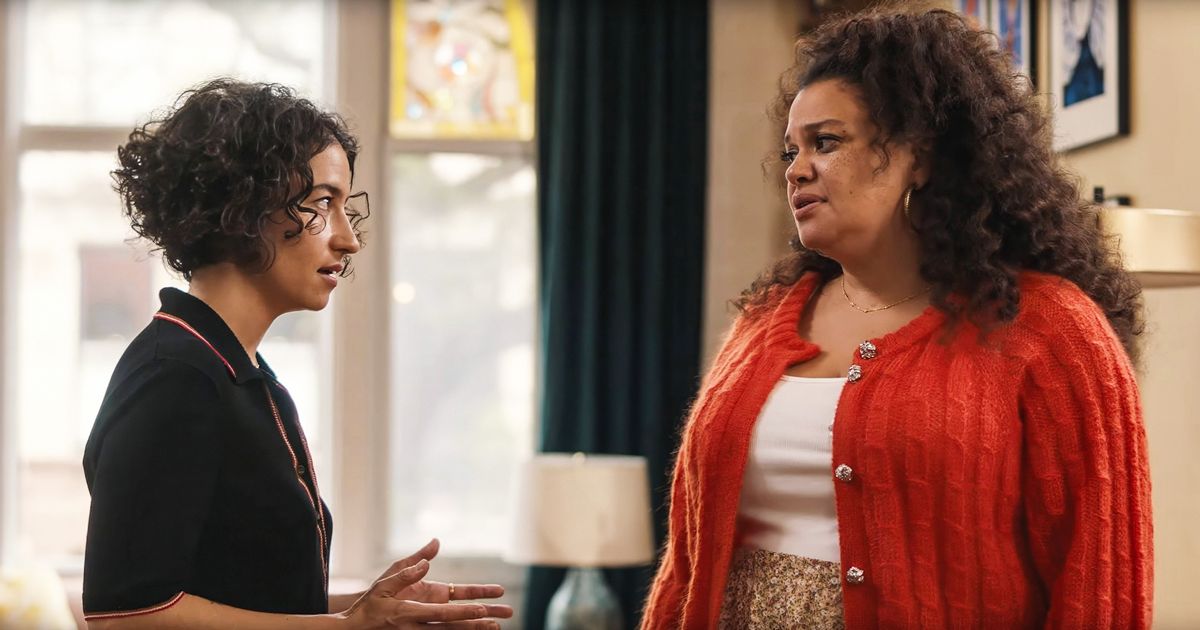Jon Bernthal and Aunjanue Ellis in Origin.
Photo: ARRAY Filmworks
This review was originally published on September 7 out of the Venice Film Festival. On June 10, 2024, Origin became available to stream on Hulu.
Ava DuVernay’s Origin is both essay film and melodrama, though neither description quite does it justice. The director has taken Isabel Wilkerson’s influential nonfiction best-seller Caste: The Origins of Our Discontents — a sweeping analysis of discrimination that finds the connections among American racism, the Nazi persecution of Jews, and India’s caste system — and turned it into a historical mystery. It sounds, on its surface, kind of insane. The film is not so much an adaptation of Caste but an attempt to translate it into the vernacular of narrative cinema. To do this, DuVernay goes back to basics: She presents Wilkerson herself (played by Aunjanue Ellis-Taylor) as the protagonist of this drama and portrays the author’s very personal journey as she’s pulled into this subject, even as her life is falling apart. But she also rifles through history to present case studies from Wilkerson’s research — sometimes through extended sequences, sometimes through mere flashes. The results are incredibly ambitious and, frankly, devastating.
Origin begins with the lead-up to the killing of Trayvon Martin (Myles Frost) by George Zimmerman in 2012, almost like a murder that might kick off a conventional whodunit. Wilkerson, wanting to take a break from writing after an award-winning book, is approached by one of her editors about doing a story on Martin’s death, but she initially demurs. After listening to recordings of Zimmerman’s 911 call, however, and pondering the idea of a Hispanic man killing a Black teen in a misguided attempt to protect a white neighborhood, she realizes there’s more to the story than just simple racism. “Racism as the primary language to understand everything is insufficient,” Wilkerson reflects to some colleagues. “Everything can’t be racist.” Something else, something deeper, is at work here.
This leads the author on a quest to understand the ways that different cultures have created social hierarchies, which then prompts DuVernay to jaunt across history with sweep and surprising dexterity. We see the story of August Landmesser (Finn Wittrock), a German shipyard worker known primarily as the man refusing to give the Nazi salute in an iconic 1935 crowd photo. We learn that despite having become a Nazi party member several years earlier, August had fallen in love and gotten engaged with a Jewish woman Irma Eckler (Victoria Pedretti), running afoul of Nazi miscegenation laws, which were themselves modeled after American laws. We also see the story of Black anthropologist Allison Davis (Isha Blaaker), who finds himself in Germany just as the Nazis are coming into power. Returning to the U.S., Davis, his wife, and their white colleagues Burleigh and Mary Gardner go undercover in Jim Crow–era Natchez, Mississippi, to study the social divisions on both sides of the racial divide.
One of DuVernay’s narrative gambits is to show how events in Wilkerson’s own life influenced her research, sometimes in subtle ways. The author is in the process of putting her ailing mother in a nursing home and struggling with the decision. She’s married to a white man, Brett Hamilton (Jon Bernthal), something she couldn’t have done just a few decades earlier. She calls a plumber (Nick Offerman) to deal with flooding in her mother’s house and has an awkward exchange with the man, who’s wearing a Make America Great Again hat. She visits Germany and gets into an argument with a friend about the differences between the Nazi extermination of Jews and the American slave trade. Wilkerson has her ideas, but she’s still in search of the connective tissue between these historical phenomena and the process by which people are systematically turned against each other. She eventually finds answers in India’s caste system, and in the treatment of Dalits, once known as “untouchables,” the lowest rung of the country’s social hierarchy, often made to clean toilets with their bare hands.
DuVernay isn’t afraid of sentimentality. She gets her camera in close to her actors, cues the music, and supercharges moments with feeling. Origin has instances of raw domestic melodrama, but the emotions are so sincere that it’s hard not to be moved by it all. The film’s depiction of moments out of history is similarly textured. A Nazi book-burning is nightmarishly in-your-face. Later, the camera swirls around the ghostly, blank shelves of the Empty Library, a present-day memorial built into the cobblestone streets of Berlin’s Bebelplatz. Glimpses into the Middle Passage are close-up and stomach-turning.
Throughout, the director seems to know exactly what details to focus on for maximum emotional impact. A brief portrait of the life of Dr. Bhimrao Ambedkar, the Dalit scholar who grew up in poverty and eventually helped draft India’s constitution, describes not just his achievements but also the fact that, as a child, he had to sit on the floor of his classroom because Dalits were not deemed clean enough to sit in chairs. We then see the story of Al Bright, an 11-year-old Black boy who in 1951 was not allowed into the pool in which his teammates were celebrating a Little League championship; he couldn’t even touch the water.
Some of these are incidents related in Wilkerson’s book, some reportedly came out of DuVernay’s additional research. Origin is a collection of ideas, of scenes and snatches both personal and historical, even a couple of interviews — a grab bag that, on paper, probably shouldn’t work. The film’s structure might have recommended an intellectualized approach, but DuVernay understands that the whole thing only works if she can reassert these people’s humanity. And her feelings for them come through in every scene, no matter how small the moment. Will it work for everyone? I can only say that the movie left me a complete wreck.















